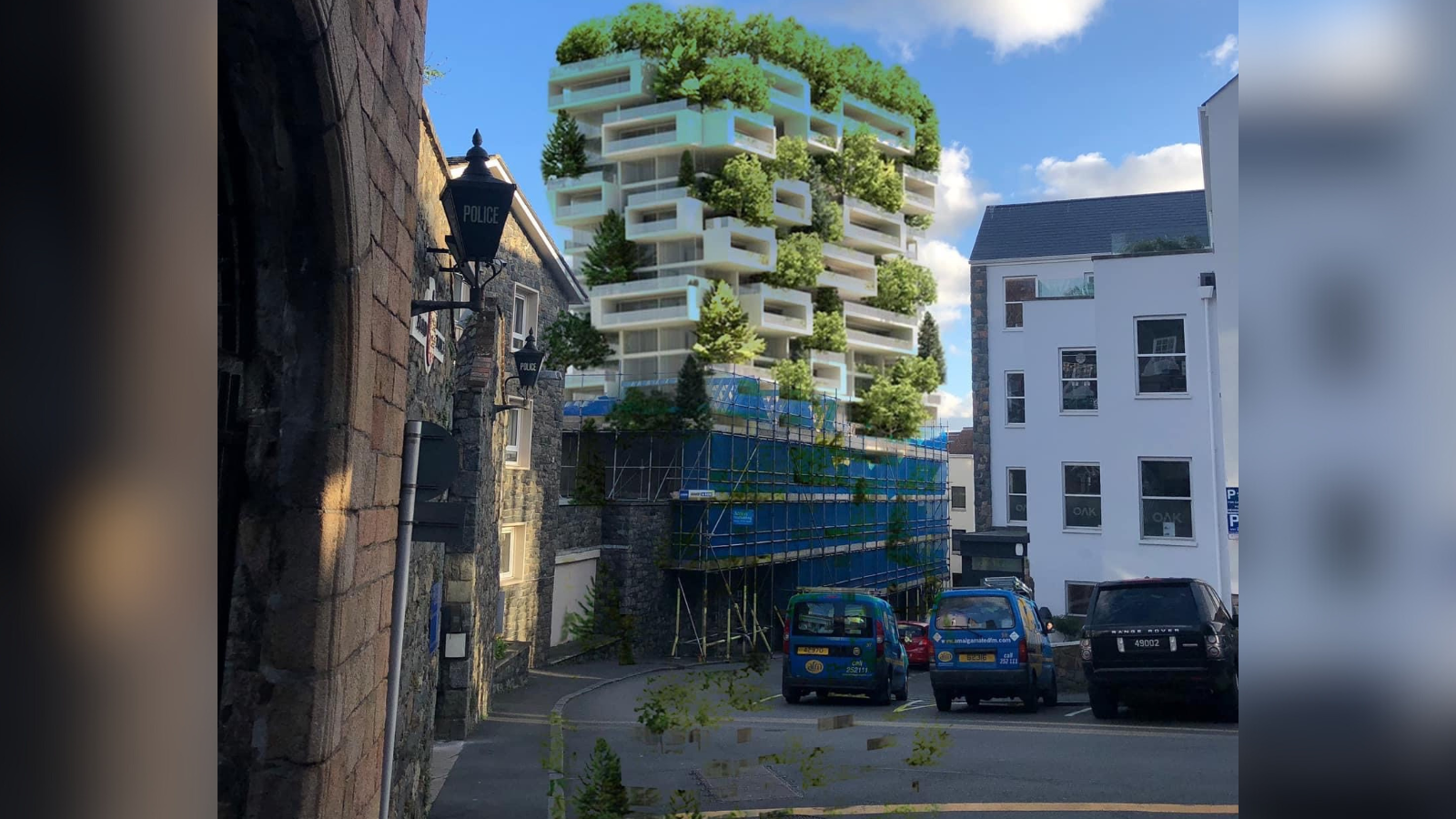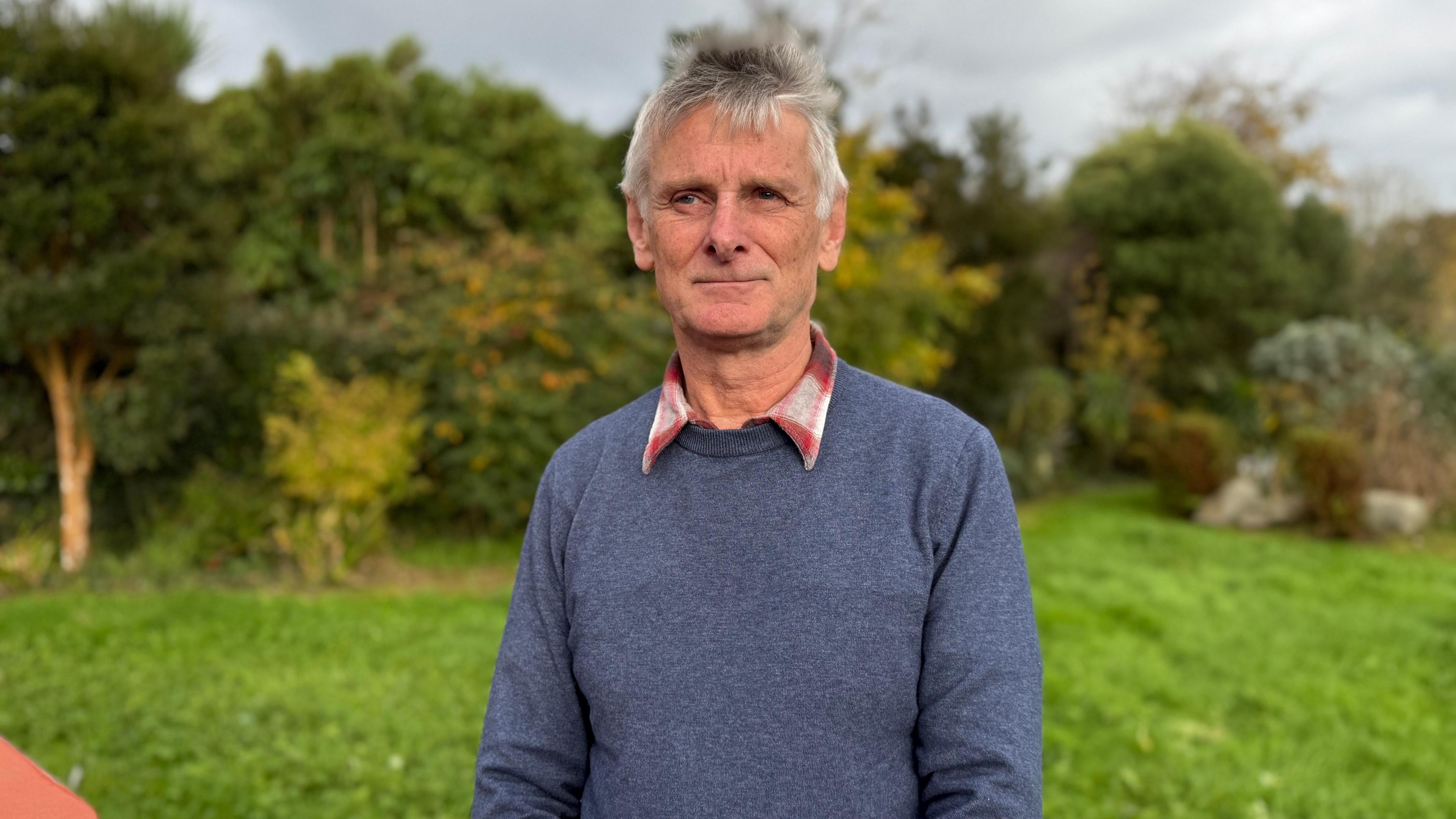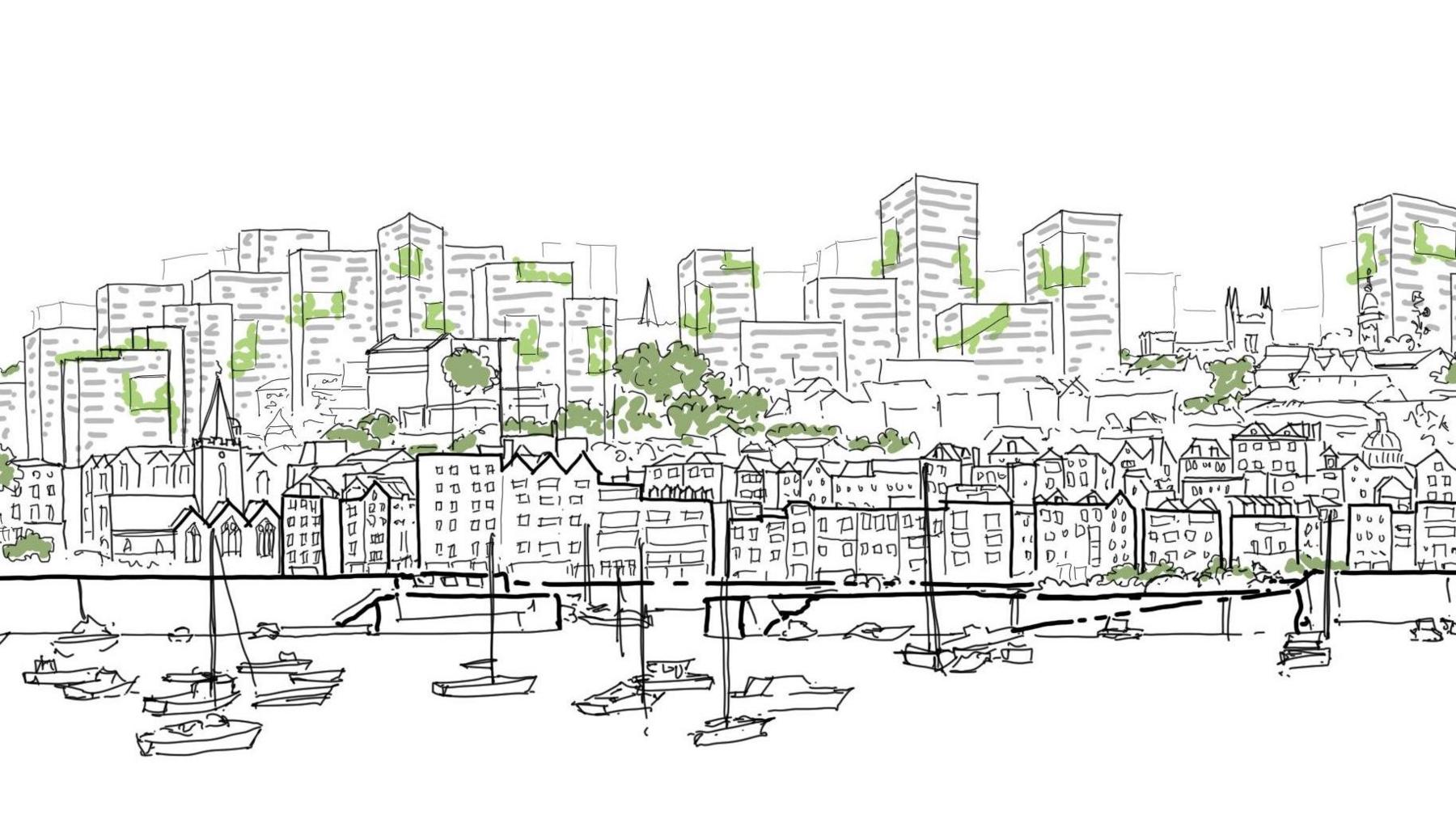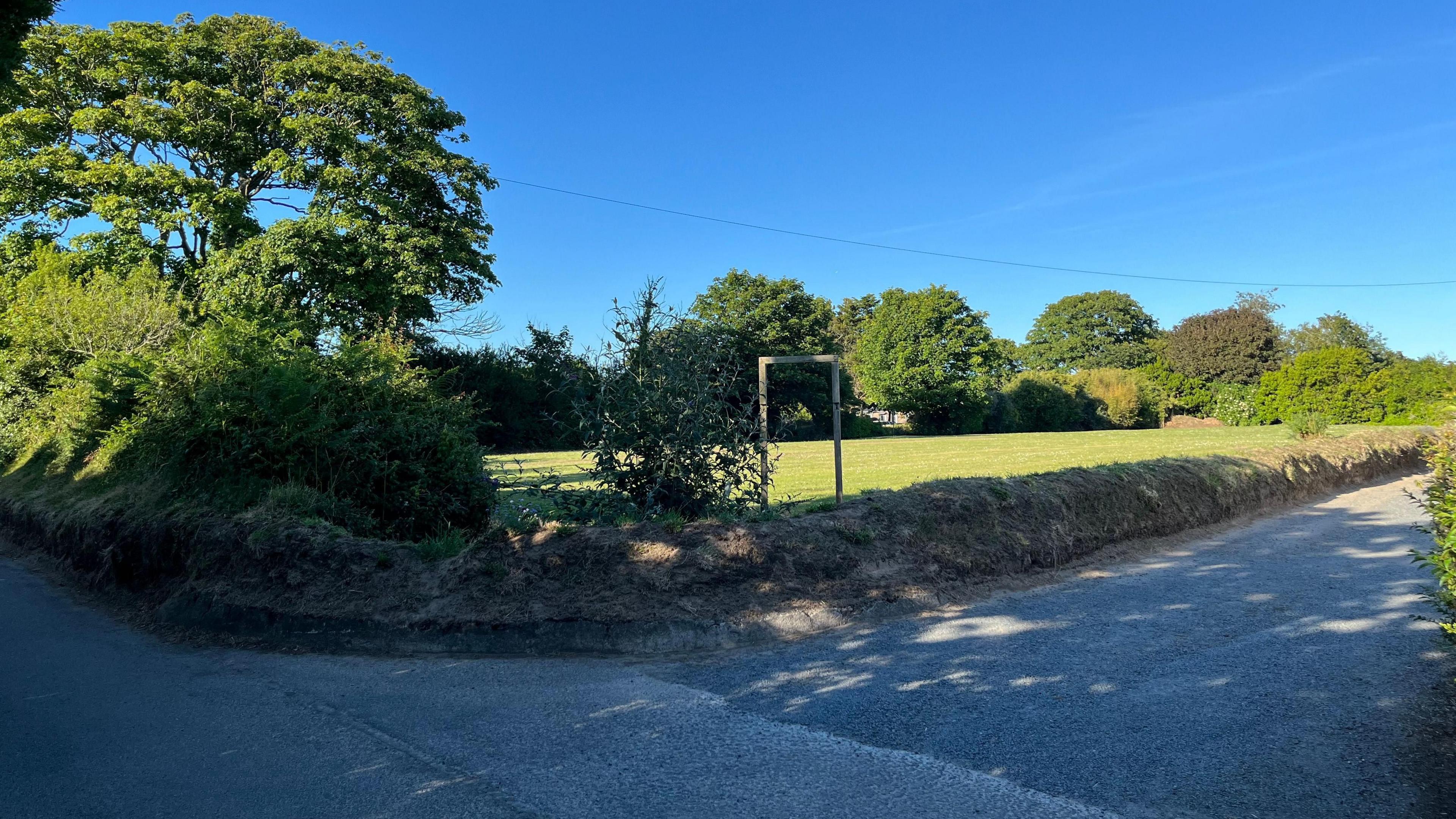Could high rises solve Guernsey's housing crisis?

Jeff Guilbert, head of the Guernsey Landlord Association, said landlords were inundated when they advertised properties
- Published
That Guernsey has a housing crisis is clear and it has been accepted by politicians, landlords and the community as a whole, but the question of how to solve it remains.
Discussions have included freeing up land, using modular homes and incentivising homeowners to rent out spare rooms, but could high rises be a key factor in getting more homes on the market?
'Overheated market'
The lack of housing in Guernsey is affecting everyone: young people hoping to move out of the family home, families wanting to expand, older people wanting to downsize and landlords.
Jeff Guilbert heads the Guernsey Landlord Association. He said the rental market was overheated.
He said: "There's not enough rental properties available and when you do advertise a property we are inundated with a tsunami of people inquiring.
"We are getting more and more inquires from people relocating to the island that don't realise how difficult it is to secure a property.
"Some were phoning in the early stages of the month and expecting to get a property by the end, in two or three weeks - it is just not going to happen."

Jeff Guilbert said without solutions to the housing crisis the island would have to accept a lower standard of hospital care
More than a quarter of households in Guernsey are private rental, according to Environment and Infrastructure President Lindsay de Saumerez.
She said: "We're seeing far more cost pressure in the rental market than we are even in the sales market, which has come off its peak.
"I do have significant concerns over the systemic affordability or unaffordability in the sector."
Enter Olly Brock - an architect by trade he now calls himself a "place maker".
He released computer generated designs to show the potential for high rises and how they would look in the island.

Architect thinks there is 'untapped potential'
He said: "I don't want to design these buildings, I just want to try and unlock our capacity to think about them and to actually look for the positive solutions and constructive solutions, rather than just moaning all the time.
"I struggle so much riding my motorcycle, looking at places as I pass them.
"I look up and down Les Banques and think the number of opportunities there are here, under-used and under-utilised plots."
Unlike many other places in the world, Guernsey is home to just one high rise building - Cour du Parc, which was built in the 1960s.
It is 11 storeys tall and is used by the Guernsey Housing Association as social housing.
Mr Guilbert thinks building higher could solve problems for key workers.
He said: "At the end of the day, we haven't got a lot of choice. The majority of people relocating to the island are key workers and essential workers.
"Unless we want to take a lesser standard of hospital care or we don't want the finance industry to be here, these people are going to keep coming and we have to put them somewhere."
'No appetite'
Andre Austin, director at estate agents Swoffers, does not think high rises are the solution Guernsey is looking for.
He said: "We don’t believe there is a particular appetite for people to live in these properties.
"The only area in the island that features any form of high rise is around Frossard House. Perhaps if the States were to relocate their HQ there may be scope to develop further on that site."
Mr Brock said building higher in areas like the Bridge could unlock up to 300 extra homes.
But Guernsey people love the "quaintness" of their islands, so would they support building further up, rather than out?
Mr Brock said: "The character of Guernsey comes from, in my mind, the variable nature of thing.
"If you asked people what they think of the island as a built character, they will talk about a fisherman's cottage, a farm house, they will talk about very traditional things.
"But unfortunately none of those things are going to provide housing for the number of people we have on the island, so we have to start thinking about how we develop our uniqueness with a larger building sector."
'Sensitive and usable'
Deputy de Saumerez believes that the community would support higher buildings.
She said: "As long as it is done in a way that is sensitive and usable. Most people in Guernsey understand that we have a pressing need for more homes.
"I think one of the other advantages of building up rather than out is that it reduces the need to develop greenfield sites around the island.
"So by making the most effective use of land in developable areas, that will have a positive impact on affordability and protecting the island's natural environment as well."
Follow BBC Guernsey on X, external and Facebook, external. Send your story ideas to channel.islands@bbc.co.uk, external.
Related topics
- Published7 November 2024
- Published24 June 2024
